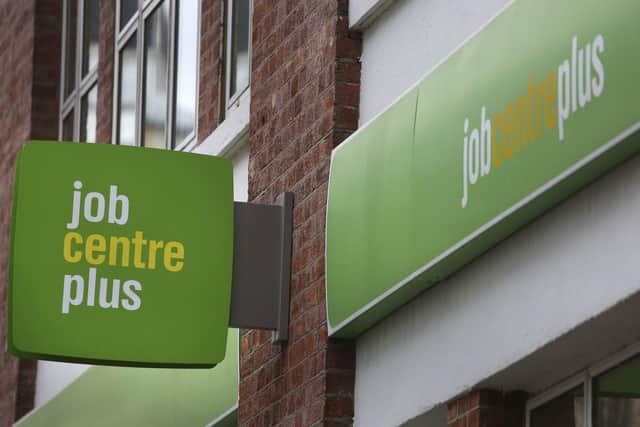Scotland’s jobs market deteriorates as demand weakens for permanent and temp staff
Scotland’s jobs market took a further turn for the worse in the closing weeks of 2023 as economic uncertainty discouraged workers from seeking new roles, a report today suggests.
Royal Bank of Scotland’s latest Report on Jobs survey points to a fresh decline in permanent staff appointments across the country during December. The pace of reduction was the strongest since April, as growing economic concerns weighed on hiring decisions.
Advertisement
Hide AdAdvertisement
Hide AdHowever, temp billings rose in December, highlighting a preference for temporary, part-time and casual staff among employers, the report noted. Candidate shortages continued to push up starting salaries, though the rate of inflation eased notably from November. Temp wage growth also softened during the tail end of the year. Overall demand for staff weakened, with both permanent and temp vacancies declining markedly in December.


Sebastian Burnside, chief economist at Royal Bank of Scotland, said it had generally been a weak year for the Scottish labour market, with permanent staff appointments rising in only three months of 2023. He added: “December recorded the most marked decline in permanent placements since April and one that was sharp overall, as employers were hesitant to commit to new hires amid lingering economic uncertainty - a theme also observed at the UK level. In contrast, temp billings continued to increase at the end of the year as businesses opted for more flexible employment arrangements.
“The subdued economic environment and signs of further declines in vacancies suggest that hiring activity will remain weak as we head into 2024. However, softening demand conditions have led to slower rates of pay growth, especially for permanent starters’ salaries, helping to ease the pressure on employers’ budgets.”
The seasonally adjusted report, which is compiled by S&P Global, is based on a monthly survey of around 70 recruitment and employment consultants, and provides up-to-date information on labour market trends. It is directly comparable with the KPMG and REC Report on Jobs survey for the UK, which uses an identical methodology.
Permanent staff availability across Scotland fell in December, stretching the current period of decrease to 35 months. According to recruiters, fewer workers were willing to risk a job move in the current economic climate. The reduction in the number of workers seeking permanent positions across Scotland contrasted with a marked upturn in permanent staff availability at the UK level.
Salaries awarded to newly-placed permanent staff increased sharply across Scotland in December, the latest findings revealed. The rise in salaries was said to have been primarily driven by candidate shortages. However, the rate of inflation moderated to a seven-month low and was weaker than both the historical and UK-wide averages.
The latest data signalled a further rise in temporary wages north of the Border at the end of 2023. While the pace of increase eased for the second month running, it remained sharp overall and broadly in line with the long-run average, RBS added. The latest upturn in temp pay was largely linked to growing cost of living pressures.
Comments
Want to join the conversation? Please or to comment on this article.